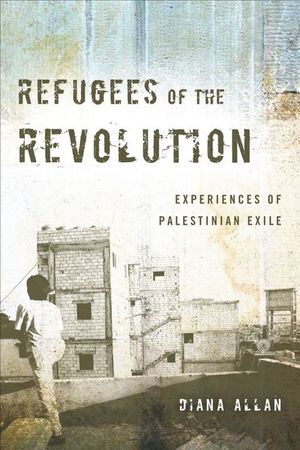Refugees of the Revolution
Published by Stanford University Press
This “carefully crafted ethnography” of a Palestinian refugee camp in Beirut reframes the relationship between home and homeland (Journal of Palestinian Studies).
More than half a century after 750,000 Palestinians fled or were expelled from their homeland, the popular conception of Palestinian refugees still emphasizes a way of life that ended abruptly with “the catastrophe” of 1948. And their camps—inhabited now for four generations—are seen as mere zones of waiting. But what would it mean for the generations born in exile to return to a place they never left?
Diana Allan addresses this question in her provocative examination of everyday life in Shatila, a refugee camp in Beirut. Challenging common assumptions about Palestinian identity and nationalist politics, Diana Allan provides an immersive account of camp experience, tracking how residents relate across generations, cope with poverty and marginalization, and plan for the future.
In so doing, she reveals how refugees are pushing back against identities rooted in a purely nationalist discourse—and forging a distinct Palestinian identity in the crucible of local pressures. This groundbreaking book offers a richly nuanced account of Palestinian exile, and presents new possibilities for the future of the community.
More than half a century after 750,000 Palestinians fled or were expelled from their homeland, the popular conception of Palestinian refugees still emphasizes a way of life that ended abruptly with “the catastrophe” of 1948. And their camps—inhabited now for four generations—are seen as mere zones of waiting. But what would it mean for the generations born in exile to return to a place they never left?
Diana Allan addresses this question in her provocative examination of everyday life in Shatila, a refugee camp in Beirut. Challenging common assumptions about Palestinian identity and nationalist politics, Diana Allan provides an immersive account of camp experience, tracking how residents relate across generations, cope with poverty and marginalization, and plan for the future.
In so doing, she reveals how refugees are pushing back against identities rooted in a purely nationalist discourse—and forging a distinct Palestinian identity in the crucible of local pressures. This groundbreaking book offers a richly nuanced account of Palestinian exile, and presents new possibilities for the future of the community.
BUY NOW FROM
COMMUNITY REVIEWS
